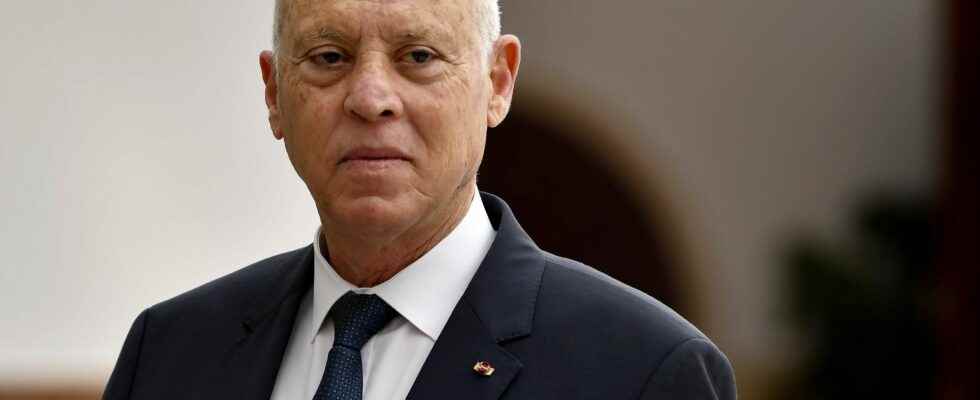The image of the master of Tunis took a new blow. The result of the legislative elections in Tunisia, marked by an abstention of more than 90%, is a snub for President Kaïs Saïed, whose opposition demanded, on Sunday, December 18, the departure. The Head of State thus finds himself very weakened in his negotiations with the International Monetary Fund (IMF) for a crucial loan. While the strong man of Tunisia has begun an authoritarian turn since he came to power on July 25, 2021, his base of popularity is cracking in the face of the country’s economic difficulties. “We are in a major political crisis,” says political scientist Hamadi Redissi, as people are crushed by shortages and inflation.
L’Express: Are these legislative elections a serious setback for Tunisian President Kaïs Saïed?
Hamadi Redissi: Yes, because the Tunisian president has decided to make it a personal matter. He set up his agenda alone against all odds, he did not want to negotiate with anyone and he finds himself today sanctioned by the ballot box in a very severe way. Kaïs Saïed based his legitimacy on the detestation of Islamism, on economic failure and on the restoration of the prestige of the State. It turns out that its legitimacy rests on an illusion and speculation fueled by the very powerful social network Facebook.
Was this result expected?
No, the specialists were counting on a participation rate of around 30%, which corresponds to that of the constitutional referendum. Everyone expected at least two million voters. This is a personal disavowal for Kaïs Saïed. Never has the abstention rate been so low in a political election in Tunisia. Today, public opinion is very volatile, it constantly changes its attitude, particularly because of the economic and social problems that exist in Tunisia. The president surfed on his image as a new man and promised to get the country back on track after ten years of revolution which were an economic disaster. It no longer works.
Is the Tunisian population more concerned about the economic situation?
Tunisians realized that the country was not doing any better economically. In recent days, the International Monetary Fund (IMF) postponed the approval of a first tranche of a loan of 1.9 billion dollars over three years. The population is confronted with shortages, the high cost of daily life and inflation. It should be noted that basic necessities are lacking in the country and the State no longer has the means to buy them abroad, for lack of foreign currency. In this context, public opinion remains outside of political logic, too busy with day-to-day difficulties.
What will be the consequences of this political fiasco?
First, the opposition exploited this debacle to demand the suspension of the second round, which will take place next March at the latest. Other political figures demand the resignation of the head of state and the organization of early elections. How will the authorities react? There is very little chance that these claims will be implemented or find any echo. I think the power will go until the second round, if the economic and social situation allows it. Moreover, the vote is important since there are more than 100 constituencies at stake out of 161. During the first round, the majority of constituencies did not have a winner.
What are the alternatives to the Kaïs Saïed diet?
With the results of the legislative elections, the opposition will put the power under pressure. However, it is divided into three blocks. The first is the National Salvation Front around the historical figure of Ahmed Nejib Chebbi. He is mainly supported by Ennahda. Then there is the Left Front, formed by five parties, and finally the Free Destourian Party (PDL), which represents the former Destour. For now, these three blocks are not determined to cooperate and form a common front, so there is no alternative. Legally, there is no mechanism to remove the president in the new Constitution of 2022, whereas it existed in the previous one drafted in 2014. We are at an impasse.
Should we expect a popular movement in Tunisia in the coming weeks?
The Tunisians are not going to mobilize after the legislative elections, we feel a disaffection of public opinion. If people take to the streets, it will not be because of the electoral result, but because of economic problems. It is as if we were on two different stages. The first is political and plays out in the head of the state, while the second is to face a probable economic collapse. Political power will only be able to breathe if the economic problems are solved.
